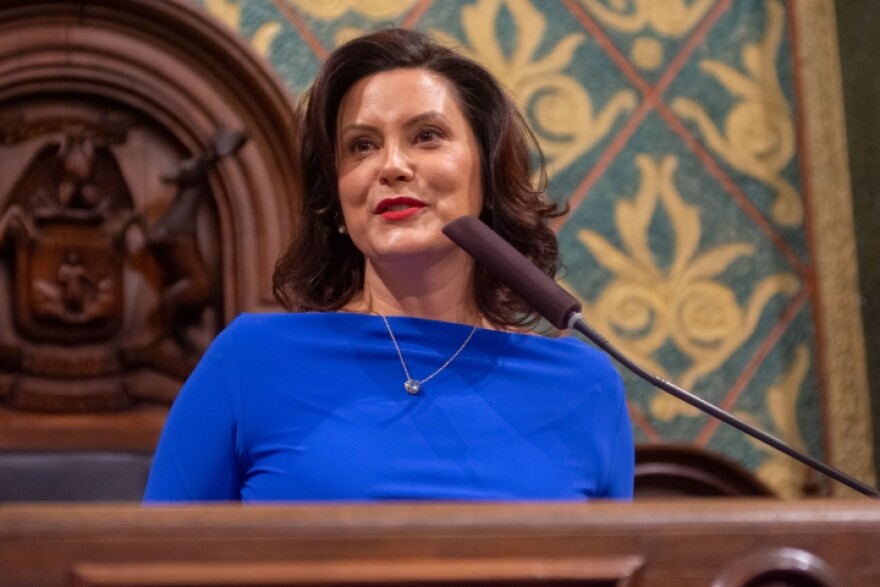Michigan Gov. Gretchen Whitmer plans to urge state lawmakers to pass legislation that would provide free community college tuition for all high school graduates during her sixth State of the State speech on Wednesday.
Whitmer also prioritized community college access in her annual address last year. State lawmakers responded by temporarily lowering the minimum age for free tuition from 25 to 21 years old. The Democratic governor now wants to expand the program by removing all age requirements for free community college, according to details of her plan provided to The Associated Press by Whitmer’s office.
Whitmer's administration created the Michigan Reconnect program in 2021, aiming to increase the percentage of the state's workforce with a postsecondary degree or training from 50.5% to 60% by 2030. It made Michigan residents 25 years and older eligible for free community college tuition.
By the end of the 2023 academic year, over 32,400 student had enrolled in the program since its launch and at least 4,400 have earned a degree or certificate, according to the governor's office.
Lowering the program’s minimum age to 21 last year made it accessible to 350,000 more residents without college degrees, and 8,500 residents have signed up, according to the governor’s office. That change is only in place through this fall's semester, when it is set to return to 25 unless lawmakers approve Whitmer’s proposal.
The program was given an initial investment of $30 million when launched in 2021 and an additional $70 million when the minimum age was temporarily lowered to 21 years old. The governor's team did not provide a cost estimate for the program's expansion to all high school graduates.
Brandy Johnson, president of the Michigan Community College Association, praised the governor’s proposal, saying in a statement that it would help remove financial barriers that “make attaining a postsecondary education seem impossible,” for many high school graduates.
Under Whitmer's proposal, eligible students must have lived in Michigan for the year prior to enrollment, must have a high school diploma and must not have previously completed a college degree. Students would have up to three years to obtain their associate’s degree.
Community college enrollment in Michigan has been on the decline. Michigan community colleges saw a 2.8% drop in enrollment last spring compared to the year before, even as national enrollment increased by 0.5%, according to the National Student Clearinghouse Research Center.
Across the country, the number of students at community colleges has fallen 37% since 2010, or by nearly 2.6 million, clearinghouse said.
Community colleges are far cheaper than four-year schools. Published tuition and fees last year averaged $3,860 per year, versus $39,400 at private and $10,940 at public four-year universities, with many states offering programs that make community college free.
Last year, much of what Whitmer wanted in her State of the State speech — including tax cuts and a repeal of right to work — was passed by a Legislature controlled entirely by Democrats.
This year could prove more difficult with the state House membership deadlocked at 54-54 until at least April. Two Democratic representatives left their seats in November after winning mayoral races and special elections will be held in the two heavily Democratic districts on April 16.

